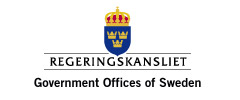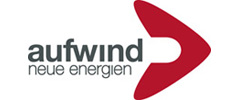Nairobi UNEP GC
Nuclear power blocks our road to a new green deal and climate protection!D CALL FOR ACTION TO KEEP NUCLEAR OUT OF THE CLEAN DEVELOPMENT MECHANISM
17.02.2009 | WECF Press Release

Keep Nuclear out of Clean Development Mechanism (CDM) and other UNFCCC mechanisms - Nuclear power blocks our road to a new green deal and climate protection!
Nairobi, Kenya, February 17.2009 - The Women’s Major Group, supported by other major groups, organised a demonstration at the main stairs to the conference rooms in the UNEP Head Quarters in Nairobi, on Wednesday 18 of February, at 9.00 AM, to call on delegates to the UNEP GC meeting, to keep nuclear power out of the Clean Development Mechanism (CDM) and other UNFCCC mechanisms.
The demonstrators wanted to express their concerns that, in the coming months, world governments will take the decision on whether to make nuclear power eligible for the CDM, or its successor or any other financial mechanism, or technology transfer, under the United Nations Framework Convention on Climate Change[1].
Kaisha Atakhanova, chair of Eco-Forum of NGOs Kazakhstan says: “The women’s and other major groups, fear that if nuclear power becomes eligible for the CDM under the Kyoto framework or its successor, it will gain access to new sources of financing, and will be seen as having received “the blessing” of the United Nations as a “green energy” solution. I come from a country which since 50 years has had Soviet nuclear activities, and we see its terrible effects in our populations, grandchildren of women who were exposed to radiation have severe health defects, worse then the generation who were directly exposed.”
Sabine Bock, Director of “Women in Europe for a Common Future Germany" says: “taking into account the 2008 scenario published by the International Energy Agency and the OECD, which shows, that even a massive, four-fold expansion of nuclear power by 2050 would provide only marginal reductions (4%) in greenhouse gas emissions, we want to express our great concern, as nuclear power is a threat to human survival at every step from uranium mining, to production to waste. There is not one part of the nuclear power chain, which is not connected to continues human rights violations, of indigenous and women’s rights and the rights of future generations”.
Sascha Gabizon, executive Director of WECF says “In times of financial crisis and job insecurity, the fourfold nuclear power expansion[2] to reduce CO2 emission by only 4%, would cost an estimated 3000 billion USD, which stands in total contradiction to the green economy as nuclear power creates very few and dangerous jobs.”

Mildrid Mekandla, Director Earth Care Africa Zimbabwe says: “with the same amount of investment we might be able to turn 150.000.000 poor households[3] into net renewable energy producers, creating millions of decent and healthy jobs, saving a magnitude more CO2 emission, saving energy costs, improving living standards, in conclusion: fighting poverty and climate at the same time.
The Women’s major group and other stakeholders are asking the delegates of the UNEP government council to:
- make a statement to recommend the governments of the world to keep nuclear power out of the CDM (or its successor) or any other UNFCCC mechanism, as it is in conflict with the goals of CDM of environmental integrity and promoting sustainable development.
- Instead, the UNEP GC should propose to create a simplified CDM mechanism for sustainable energy projects at household and community level, including improved funding conditions[4] for smaller scale and cutting-edge technology projects. Such projects should be developed in consultation with the local communities, including women, and should be accessible to them. To achieve this there should be simplified registration procedures for micro projects ( as well as the creation of specialised Designated Operational Entities (DOEs) for small communities projects.
- The UNEP GC should however promote that Annex 1 countries, must reduce emissions in a first step in their own countries in the range recommended by the IPCC[5] and use the CDM offsetting mechanism only for truly sustainable energy efficiency and renewables projects beyond this range, and should meet the Gold Standard criteria.
Contact Persons:
Sabine Bock, WECF Germany, sabine.bock@wecf.eu +4917622827465
Kaisha Atakhanova (Russian speaking), kaisha_07@mail.ru +7-7017180945 (mobile), Kazakstan
Nuha Ma’Ayta, Jordan phone +962-77-7262624
Sascha Gabizon, WECF Netherlands, sascha.gabizon@wecf.eu +49-172-8637586 (mobile) +31-30-2310300
[1] See proposal added during the Agra, Ghana, meeting, 2008.
[2] See IEA and OECD energy scenario 2008.
[3] At 20,000 USD per household, see presentation by WECF at the high-level gender conference, UNEP, 15 February 2009.
[4] To address the barrier of upfront funding required, a CDM bank for upfront funding could be created, also, fixed and high prices of CERs for these small CDM projects should be assured and grants for transaction costs put in place.
[5] 25-40%.
Related News
Meet the Winners of the Gender Just Climate Solutions Award at COP24
On the 70th anniversary of the Universal Declaration of Human Rights, we awarded Gender Just Climate Solutions Winners at the climate negotiations in Katowice, Poland
11.12.2018
Invitation: Gender Just Climate Solutions Award 2018
10 December, COP24 Katowice
04.12.2018
Getting to the Future We Want
4-7 November, Brussels: European Environmental Bureau’s (EEB) Annual Conference
12.11.2018
GoodFood4All
WECF and partners all over Europe start GoodFood4All Campaign
06.11.2018
#Ruralwomen: join our Women2030 campaign!
15.10.2018






































